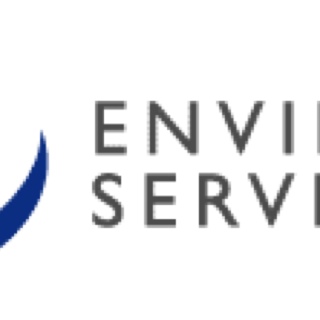Information
-
Conducted on
-
Location
-
CLIENT
-
SUPERVISOR/FOREMAN
-
HEALTH & SAFETY MANAGER
-
JOB NUMBER
-
JOB DESCRIPTION
HAZCOM (1910.1200)
-
MSDS available on site?
-
Hazardous work permit completed and signed?
-
Have critical tasks been identified on permit?
-
Project specific JHA available?
-
Is JHA being followed?
-
Daily Safety meeting held & attended by crew?
Emergency & Post Emergency Response (1910.120)
-
Is this response an emergency or post emergency response?
-
Safety plan signed by crew?
-
SSHASP completed?
PERSONAL PROTECTIVE EQUIPMENT (1910.132)
-
PPE identified on permit or JHA matches what is being used?
-
PPE appropriate for task?
-
PPE being properly worn by crew ?
-
Respiratory Protection being utilized ?
AIR MONITORING
-
Does this task require air monitoring?
-
Appropriate air monitoring being conducted?
-
Air monitoring instruments properly calibrated?
-
Readings properly documented?
-
Action Levels being adhered to ?
-
Is continuos CO monitoring required
EMERGENCY PREPAREDNESS
-
Appropriate size first-aid kits on site, available and stocked?
-
Minimum of two First-aid/CPR trained personnel on site? (where appropriate)
-
Safety shower, or hose and eye wash in immediate vicinity when working with acids or caustics?
-
Emergency numbers obtained, posted and means to contact emergency services posted?
-
Location of nearest hospital documented and known by crew?
ELECTRICAL SAFETY
-
Does this task require electrical safety?
-
Is an operable Ground Fault Circuit Interrupter (GFCI) used on all equipment? (Where appropriate)
-
Is equipment appropriate for the location (e.g. U/L listed Class 1 Division 1 for flammable locations?
-
Are equipment leads and extension cords in good repair?
FIRE SAFETY
-
Does this task require fire safety?
-
Are a sufficient number of fire extinguishers present?
-
Are all extinguishers inspected with tags attached?
-
For flammable/combustible transfers, has bonding and grounding been performed?
-
Have all ignition sources been eliminated?
-
Is LEL area monitoring been conducted?
HOT WORK
-
Does this task require hot work?
-
Are available fire hoses, sprinklers or extinguishers in good repair?
-
Is the Hot Work permit properly completed?
-
Hot work equipment (torches, welders, grinders) in good repair?
-
Have containers, tanks or vessels been inerted to less than 8% oxygen?
-
Have explosive atmospheres been eliminated (35 feet)?
-
Have all wall and floor openings been covered (35 feet)?
-
Are welding blankets being utilized where necessary?
-
Has paint or coatings been removed from the area where the hot work will be conducted?
-
Have all combustible & flammable materials/liquids been removed from the area (35 feet)?
-
Has a fire watch been maintained for 30 minutes after completion of the hot work?
LOCKOUT / TAGOUT (1910.147)
-
Does this task require lock out/tag out?
-
Is a LO/TO Permit completed and available?
-
Have all types of energy been de-energized?
-
Do all affected employees have locks applied?
-
Are all other LO/TO Procedures being followed?
EXCAVATION/TRENCHING (1926.651-652)
-
Does this task require excavation and/or trenching?
-
Have all utilities been identified or marked?
-
Is there a competent person on site?
-
Is there a ladder available in the excavation for every 25 feet of travel distance?
-
For excavations over 4 feet, are sloping or shoring options being followed?
-
Are excavation spoils located at least 2 feet from the edge of the excavation?
-
Is standing water in the excavation being controlled?
-
If no personnel entry is required has a "no-mans-land" been established 3/4 of the excavation depth away from the edge?
-
Has the excavation been evaluated for confined space hazards?
Pressure Washing
-
Does this task require pressure washing?
-
Are hoses protected by whip checks?
-
Is the wand at least 48 inches long?
-
Are hoses connected by threaded unions?
-
Are shin guards/metatarsals utilized?
SCAFFOLD & ELEVATED LIFT SAFETY (1910.128)
-
Is scaffolding or elevated lift being utilized?
-
All personnel "User" trained?
-
Competent Person on site?
-
Scaffolding erected according to guidelines?
-
Daily inspection documented?
-
Inspection tag or equivalent attached to scaffold?
-
Are all components in good working condition?
-
Load limits documented and followed?
-
Work platform complete with top rail, middle rail and toe boards?
-
Is an aerial lift being utilized?
Aerial lifts
-
Manual reviewed by operator?
-
Daily inspection completed?
-
Full body harness and lanyard used in basket?
VACTOR SAFETY
-
Is vactor equipment being utilized?
-
Vacuum relief manned and in line of sight of hose end?
-
Electric vacuum relief or in-line tee being utilized?
-
Hands & feet kept a minimum 2' from the end of the hose?
-
Double hearing protection used?
-
Hose secured to prevent "bucking"
FALL PROTECTION (GREATER THAN 6 FEET)
-
Is fall protection required for this task?
-
Are anchor points of sufficient strength (i.e.. 5000 capacity)
-
Are harnesses and appropriate lanyards being worn?
-
If no harness/lifelines are utilized, has a warning line been placed at least 6 feet from the edge?
MISCELLANEOUS SAFETY ITEMS
-
Have appropriate smoking and eating areas been designated?
-
Is the work zone properly barricaded or secured?
-
Are appropriate work zones (hot zone, decon, support) established and sufficient?
-
Is the system of communication utilized by the crew sufficient?
-
Is the lighting utilized on the site sufficient to safely illuminate the work zone?
GENERAL SITE CONDITIONS OR COMMENTS
-
Site Conditions?
-
Attach picture of site if applicable.
-
Comments?
Action Items
-
Site description?
-
REVIEWED H&S:
-
SUPERVISOR / LEAD TECHNICIAN









